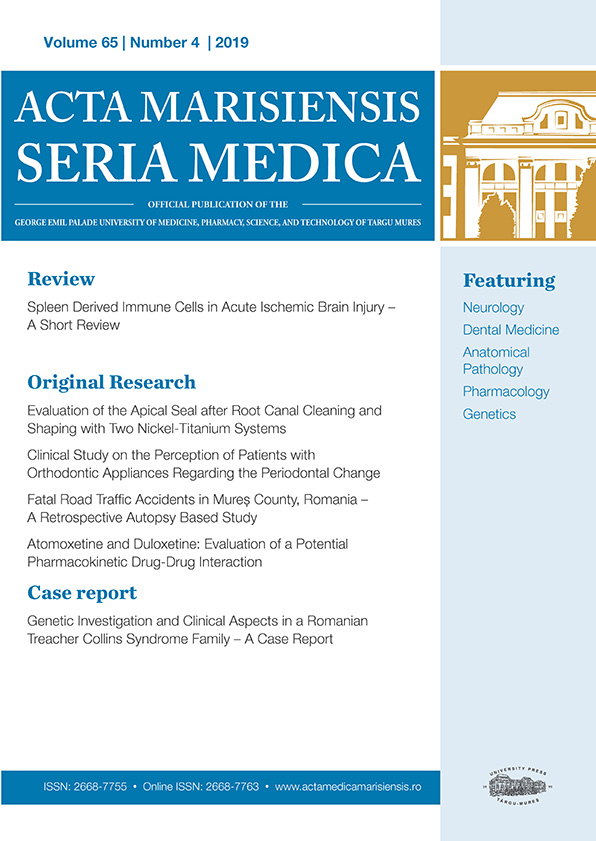Adrenocortical carcinoma: A tumor with poor answer to classic chemotherapy
DOI:
https://doi.org/10.2478/amma-2023-0039Keywords:
adrenocortical carcinoma, Weiss score, familial cancer syndromes, MitotaneAbstract
Introduction
Adrenocortical carcinoma (ACC) represents a rare endocrine malignancy being the second most aggresive endocrine cancer after anaplastic thyroid cancer. [1]. While most of them arise sporadically, up to 15% of adult ACC patients are related to germline mutations associated with familial cancer syndromes.[1,2]. Curent treatment strategies includ surgery, mitotane and chemotherapy
Case report
A 60-year-old female patient with a family history of colon cancer, polynodular goiter, hypothyroidism treated with substitutive therapy, uterine fibroids, and hypertension was diagnosed with adrenocortical carcinoma. No distant metastasis were present at the moment of diagnosis so a adrenalectomy was performed. Due to postoperatory complications, a total nephrectomy was also needed. Adjuvant Mitotane treatment was given. At 5 months after the diagnosis, a CT exam showed multiple pulmonary metastasis, a liver nodule and peritoneal carcinomatosis. First line chemotherapy of choice was Carboplatin and Etoposide. After completing 3 cycles of chemotherapy the imaging reassessment show the progression of liver and peritoneal lesions and the quasi-complete regression of lung lesions. Curently the Mitotate treatment was stoped due to severe reaction.
Conclusions
Adrenocortical carcinoma is a rare endocrine malignancy with a poor prognosis. The recruitment of ACC patients for new clinical trials to investigate new treatment agents is needed because currently no significant therapeutic breakthrough in emerging.
Downloads
Published
How to Cite
Issue
Section
License
Acta Marisiensis Seria Medica provides immediate open access to its content under the Creative Commons BY 4.0 license.









